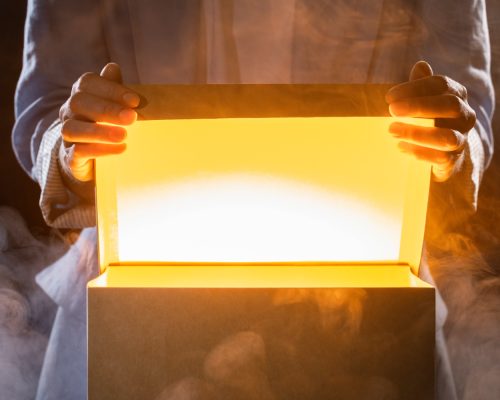Are you a writer, artist, musician, or simply someone who thrives on fresh ideas and innovative solutions? If so, you’ve probably experienced firsthand the frustrating fog that descends when you’re sleep-deprived. But what if I told you that sleep isn’t just about rest and recovery—it’s also the secret ingredient to unlocking your creative genius?
As we explored in our previous post on the science of sleep, sleep is a complex and active process that’s crucial for cognitive function. But beyond memory and focus, sleep also plays a pivotal role in fostering creativity, allowing your brain to make unexpected connections, generate novel ideas, and approach problems from fresh perspectives.
How Sleep And Creativity Work Together

Now that we understand how sleep works its magic on our brains, let’s explore how this symphony of neural activity can boost your creativity
-
REM Sleep and Dreaming: Remember that dreamy phase of sleep where your eyes dart around and your brain activity ramps up? That’s REM sleep, and it’s believed to be a hotbed for creative thinking. During REM, your brain weaves together fragments of memories, emotions, and experiences, often creating bizarre and imaginative scenarios that can inspire new ideas and solutions. Some of the most famous creative breakthroughs, from the melody of “Yesterday” by the Beatles to the structure of benzene, have been attributed to dreams.
-
Consolidating Memories and Making Connections: Sleep also plays a crucial role in memory consolidation, the process of strengthening and integrating new information into your existing knowledge base. This consolidation process, which occurs during both REM and non-REM sleep, is essential for creative thinking. It allows your brain to connect seemingly unrelated concepts and generate novel ideas.
-
Problem-Solving and Insight: Ever wake up with a solution to a problem that had been bugging you? That’s your well-rested brain at work! Sleep helps you approach problems from a fresh perspective, allowing for those “aha!” moments of insight. In fact, studies have shown that people are more likely to solve complex problems after a good night’s sleep than those who are sleep-deprived.
-
Emotional Regulation and Openness: Adequate sleep promotes emotional regulation, making it easier to manage stress and anxiety. This emotional balance fosters a more open and receptive mindset, which is conducive to creative thinking. When you’re not bogged down by negative emotions, you’re more likely to embrace new ideas and take creative risks.
Sleep Deprivation: A Creativity Killer

Conversely, sleep deprivation can stifle your creative potential. When you’re running on empty, your brain struggles to think flexibly, make connections, and propose original ideas. You’re more likely to get stuck in mental ruts, fall back on familiar patterns, and miss out on those innovative sparks that can elevate your work.
As discussed in our post on Sleep and productivity, sleep deprivation can also affect your focus, motivation, and overall cognitive function, further hindering your creative process.
Tips for Boosting Creativity Through Sleep
If you are looking to boost your creativity through quality sleep, here is what you need to do;
- Prioritize Sleep: Make sure you’re getting 7-9 hours of quality sleep each night. This is the foundation for optimal brain function and creative thinking.
- Keep a Dream Journal: Record your dreams upon waking to capture any creative insights or inspiration.
- Nap Strategically: If you’re feeling creatively blocked, a short nap (20-30 minutes) can refresh your mind and boost your creative thinking.
- Experiment with Different Sleep Schedules: Some people find they’re more creative in the morning, while others thrive in the evening. Experiment with different sleep-wake cycles to find what works best for your creative process.
Nurture Your Creativity with Rest
When relating sleep and creativity, it’s clear that rest is not a luxury but a necessity. A well-rested brain is a creative brain, capable of generating innovative ideas, solving complex problems, and producing inspiring work. By prioritizing sleep and understanding its role in the creative process, you can unlock your full potential and unleash your inner muse.
If you’re struggling with sleep problems and want to reclaim your rest – and your creative spark – be sure to check out our post on Tossing and Turning in Bed? Common Sleep Problems and How to Reclaim Your Rest for practical tips and solutions. Sweet dreams, and happy creating!


